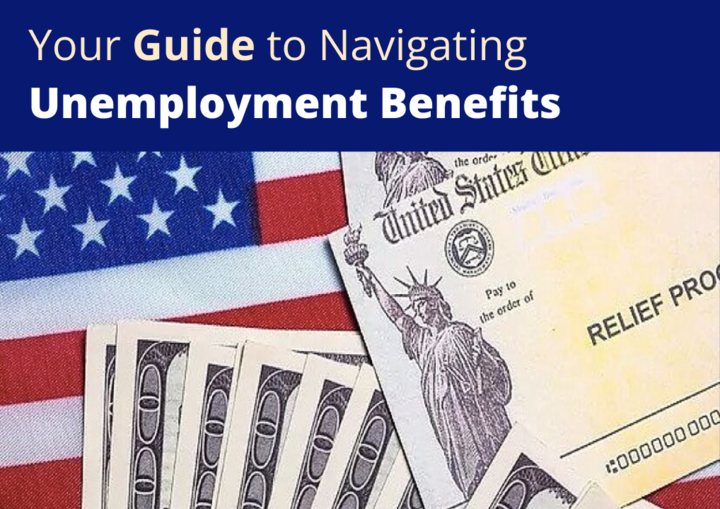When embarking on the journey of homeownership, one of the first financial hurdles prospective buyers encounter is the upfront costs associated with purchasing a property. These costs can vary significantly based on the location, type of home, and the buyer’s financial situation. Typically, the most substantial upfront cost is the down payment, which is a percentage of the home’s purchase price.
For conventional loans, this can range from as low as 3% to as high as 20% or more. For instance, on a $300,000 home, a 20% down payment would amount to $60,000, a significant sum that requires careful financial planning and saving. In addition to the down payment, buyers should also consider other upfront costs such as earnest money deposits, which demonstrate a buyer’s commitment to the purchase and are usually held in escrow until closing.
This deposit can range from 1% to 3% of the purchase price. Furthermore, there are costs associated with obtaining a mortgage, including application fees and credit report fees. These expenses can add up quickly, making it essential for buyers to have a clear understanding of their financial obligations before entering the housing market.
Key Takeaways
- Upfront Costs: Include down payment, earnest money, and initial home inspection fees.
- Closing Costs: Cover expenses such as attorney fees, title insurance, and transfer taxes.
- Home Inspection and Appraisal Fees: Essential for assessing the condition and value of the property.
- Property Taxes: Annual taxes based on the assessed value of the property.
- Homeowners Insurance: Protects against damage and liability, typically paid annually or monthly.
- Maintenance and Repairs: Budget for ongoing upkeep and unexpected repairs.
- Utilities and Monthly Expenses: Include electricity, water, and other recurring costs.
- HOA Fees: Monthly or annual fees for shared community amenities and maintenance.
Closing Costs
Once a buyer has navigated the upfront costs and secured a mortgage, they must prepare for closing costs, which are incurred at the finalization of the home purchase. Closing costs typically range from 2% to 5% of the home’s purchase price and can include a variety of fees. These may encompass lender fees, title insurance, appraisal fees, and attorney fees, among others.
For example, if a buyer is purchasing a home for $300,000, they could expect to pay anywhere from $6,000 to $15,000 in closing costs alone. It is crucial for buyers to be aware that closing costs can vary widely based on factors such as location and lender practices. Some lenders may offer “no-closing-cost” mortgages, where the closing costs are rolled into the loan amount or offset by a higher interest rate.
Buyers should carefully evaluate these options and consider how they align with their long-term financial goals. Additionally, it is advisable for buyers to request a Good Faith Estimate (GFE) from their lender early in the process to gain insight into potential closing costs and avoid any surprises at the closing table.
Home Inspection and Appraisal Fees
Before finalizing a home purchase, buyers typically engage in a home inspection and appraisal process, both of which come with their own set of fees. A home inspection is an essential step that allows buyers to assess the condition of the property and identify any potential issues that may require attention. The cost of a home inspection can vary based on factors such as location and the size of the home but generally ranges from $300 to $500.
This investment can save buyers from unexpected repair costs down the line by providing a comprehensive overview of the property’s condition. On the other hand, an appraisal is conducted by a licensed appraiser to determine the fair market value of the home. Lenders require appraisals to ensure that they are not lending more than the property is worth.
Appraisal fees typically range from $300 to $700, depending on the complexity of the property and local market conditions.
Both inspections and appraisals are critical components of the home-buying process that help protect buyers’ interests and ensure they are making informed decisions.
Property Taxes
Property taxes are an ongoing expense that homeowners must factor into their budget after purchasing a home. These taxes are levied by local governments and are based on the assessed value of the property. The rates can vary significantly depending on the location; for instance, some states have relatively low property tax rates while others may impose higher rates to fund local services such as schools, infrastructure, and public safety.
Homeowners should research property tax rates in their desired area to gain an understanding of what they can expect. In addition to understanding the tax rate itself, homeowners should also be aware that property taxes can change over time due to reassessments or changes in local tax laws. For example, if a neighborhood undergoes significant development or improvement, property values may rise, leading to higher taxes for homeowners.
It is advisable for buyers to budget for potential increases in property taxes and consider how these expenses will impact their overall financial situation in the long term.
Homeowners Insurance
Homeowners insurance is another critical expense that homeowners must account for when budgeting for their new property. This type of insurance provides financial protection against various risks such as fire, theft, and natural disasters. The cost of homeowners insurance can vary widely based on factors such as location, coverage limits, and the home’s value.
On average, homeowners can expect to pay between $800 and $1,500 annually for insurance coverage. When selecting a homeowners insurance policy, it is essential for buyers to carefully evaluate their coverage options and consider factors such as deductibles and additional endorsements for specific risks like flooding or earthquakes. Some lenders may require homeowners insurance as part of their mortgage agreement, making it crucial for buyers to secure adequate coverage before closing on their new home.
Additionally, shopping around for quotes from multiple insurance providers can help homeowners find competitive rates and ensure they are getting the best value for their coverage.
Maintenance and Repairs
Routine Maintenance Tasks
A common rule of thumb is to budget approximately 1% of the home’s value annually for maintenance and repairs. For example, if a homeowner has purchased a $300,000 property, they should anticipate setting aside around $3,000 each year for upkeep.
Significant Repairs and Their Impact
In addition to regular maintenance tasks, homeowners should also be aware that certain repairs can be more significant in terms of cost and impact on their living situation. For instance, replacing a roof or addressing plumbing issues can require substantial financial outlays.
The Importance of an Emergency Fund
It is wise for homeowners to establish an emergency fund specifically for these types of unexpected expenses to avoid financial strain when repairs are needed.
Utilities and Monthly Expenses
Beyond mortgage payments and property taxes, homeowners must also consider utilities and other monthly expenses that come with owning a home. Utility bills typically include electricity, water, gas, internet, and trash collection services. The cost of these utilities can vary based on factors such as location, size of the home, and individual usage patterns.
For example, larger homes may incur higher heating and cooling costs due to increased square footage. In addition to utilities, homeowners should also account for other monthly expenses such as homeowner association (HOA) fees if applicable. These fees can cover amenities like landscaping, community maintenance, or recreational facilities but can vary widely depending on the community’s offerings.
It is essential for prospective buyers to factor these ongoing expenses into their overall budget to ensure they can comfortably manage their financial obligations after purchasing a home.
HOA Fees
For those considering properties within planned communities or condominiums, homeowners association (HOA) fees are an important aspect of budgeting that cannot be overlooked. These fees are typically collected monthly or quarterly and are used to maintain common areas and amenities such as pools, parks, landscaping, and security services. The amount of HOA fees can vary significantly based on factors such as location and community features; some communities may charge only a few hundred dollars per year while others may demand several thousand dollars annually.
It is crucial for potential buyers to thoroughly review HOA rules and regulations before committing to a property within an association. Understanding what services are covered by the fees and any restrictions imposed by the HOA can help buyers make informed decisions about whether a particular community aligns with their lifestyle preferences. Additionally, prospective homeowners should inquire about any potential increases in HOA fees over time or special assessments that may arise due to unexpected expenses within the community.
By being well-informed about HOA fees and regulations, buyers can better prepare themselves for the responsibilities associated with living in an HOA-managed community.
FAQs
What are the hidden costs of buying a home?
Hidden costs of buying a home can include closing costs, home inspection fees, appraisal fees, property taxes, homeowners insurance, and maintenance and repair costs.
What are closing costs?
Closing costs are fees paid at the closing of a real estate transaction. These costs can include loan origination fees, title insurance, attorney fees, and property taxes.
What are home inspection fees?
Home inspection fees are the costs associated with hiring a professional to inspect the home for any potential issues or problems. This can include structural issues, electrical problems, and plumbing issues.
What are appraisal fees?
Appraisal fees are the costs associated with hiring a professional appraiser to determine the value of the home. Lenders require an appraisal to ensure the home is worth the amount of the loan.
What are property taxes?
Property taxes are taxes paid to the local government based on the value of the property. These taxes can vary depending on the location of the home.
What is homeowners insurance?
Homeowners insurance is a type of insurance that protects the homeowner from financial losses due to damage to the home or its contents. This is typically required by lenders when obtaining a mortgage.
What are maintenance and repair costs?
Maintenance and repair costs are the ongoing expenses associated with maintaining the home. This can include regular maintenance such as lawn care, as well as unexpected repairs such as a leaky roof or a broken appliance.







